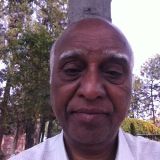Implement Supreme Court judgment on noise pollution
Noise pollution affects both health and behavior. Unwanted sound (noise) can damage psychological health. Noise pollution can cause hypertension, high stress levels, tinnitus, hearing loss, sleep disturbances, and other harmful effects.
Why was the issue of Noise Pollution raised with the Supreme Court?
(i) noise created by horns of engines, pressure horns in automobiles, loudspeakers, denting painting of cars, particularly, in residential areas and from unauthorized premises being prohibited;
(ii) use of loudspeakers in religious places such as temples, mosque, churches, gurudwaras and other places being discontinued or at least regulated;
(iii) firecrackers burst during Diwali festival and on other occasions for fun or merry making being prohibited completely, if the noise created exceeds certain decibels and being so regulated as to prevent bursting during night hours.
• Those who make noise often take shelter behind Article 19(1)A pleading freedom of speech and right to expression. Undoubtedly, the freedom of speech and right to expression are fundamental rights but the rights are not absolute. Nobody can claim a fundamental right to create noise by amplifying the sound of his speech with the help of loudspeakers. While one has a right to speech, others have a right to listen or decline to listen.
• The judgment gives the sources of noise pollution and their ill effects.
• The judgment tells you how various countries have combated with the problem of noise pollution.
• The Government of India framed and published Noise Pollution Control and Regulation Rules, 1999. On 11.10.2002 the Government of India brought in an amendment in the Rules. The amendment empowered the State Government to permit use of loudspeaker or public address system during night hours (between 10 pm and 12 pm mid-night) on or during the cultural or religious occasions for a limited period not exceeding 15 days.
• According to The Noise Pollution (Regulation and Control) Rules, 2000 a loudspeaker or a public address system shall not be used except after obtaining written permission from the authority and the same shall not be used at night i.e. between 10.00p.m. and 6.00 a.m.
• Loudspeakers and amplifiers or other equipments or gadgets which produce offending noise once detected as violating the law, should be liable to be seized and confiscated by making provision in the law in that behalf.
• Diwali is the most important festival of India. The bursting of firecrackers during this period is a wide spread practice. The unpredictable, intermittent and impulsive noise produced by bursting of crackers all around, turns the festival of lights into cacophony of noise. People are unable to even sleep due to this excessive noise pollution. Several people are injured due to the noise produced by firecrackers every year.
• The Court by restricting the time of bursting the firecrackers has not in any way violated the religious rights of any person as enshrined under Article 25 of the Constitution. The festival of Diwali is mainly associated with pooja performed on the auspicious day and not with firecrackers. In no religious textbook it is written that Diwali has to be celebrated by bursting crackers. Diwali is considered as a festival of lights not of noises.
• The judgment gives references to various judicial opinions in India for eg 120. The Supreme Court in Church of God (Full Gospel) in India v. K.K.R. Majestic Colony Welfare Assn., MANU/SC/0537/2000 held that the Court may issue directions in respect of controlling noise pollution even if such noise was a direct result of and was connected with religious activities. It was further held:-
"Undisputedly, no religion prescribes that prayers should be performed by disturbing the peace of others nor does it preach that they should be through voice amplifiers or beating of drums. In our view, in a civilized society in the name of religion, activities which disturb old or infirm persons, students or children having their sleep in the early hours or during daytime or other persons carrying on other activities cannot be permitted.
Judgment Directions.
II. Loudspeakers
1. The noise level at the boundary of the public place, where loudspeaker or public address system or any other noise source is being used shall not exceed 10 dB (A) above the ambient noise standards for the area or 75 dB (A) whichever is lower.
2. No one shall beat a drum or tom-tom or blow a trumpet or beat or sound any instrument or use any sound amplifier at night (between 10. 00 p.m. and 6.a.m.) except in public emergencies. 3. The peripheral noise level of privately owned sound system shall not exceed by more than 5 dB (A) than the ambient air quality standard specified for the area in which it is used, at the boundary of the private place.
Fire Crackers
1. There shall be a complete ban on bursting sound emitting firecrackers between 10 pm and 6 am. It is not necessary to impose restrictions as to time on bursting of colour/light emitting firecrackers.
The focus of this judgment was on noise pollution caused by Loudspeakers and Firecrackers. I wish the Apex Court had extended the 10pm deadline to 11.30 pm for the Navaratri festival. Inspite of having got commercialized it continues to be colorful and enjoyable festival. Moreover in Mumbai people living in the suburbs reach home after 8.30 pm so the 10 pm deadline will limit the time for enjoyment of festival celebrations.
I also hope that our Politicians do not invoke Secularism to prevent mosques from reducing the decibel level of loudspeakers installed therein more
















